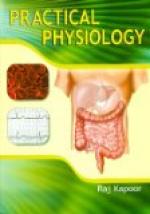Dyspepsia (Gr. -dys, ill, and peptein, to digest). A condition of the alimentary canal in which it digests imperfectly. Indigestion.
Dyspnoea (Gr. dys, difficult, and pneo, to breathe). Difficult breathing.
Efferent (Lat. effero, to carry out). Bearing or carrying outwards, as from the center to the periphery.
Effluvia (Lat. effluo, to flow out). Exhalations or vapors coming from the body, and from decaying animal or vegetable substances.
Element. One of the simplest parts of which anything consists.
Elimination (Lat. e, out of, and limen, liminis, a threshold). The act of expelling waste matters. Signifies, literally, “to throw out of doors.”
Emetic (Gr. emeo, to vomit). A medicine which causes vomiting.
Emulsion (Lat. emulgere, to milk). Oil in a finely divided state, suspended in water.
Enamel (Fr. email). Dense material covering the crown of a tooth.
Endolymph (Gr. endon, within, and Lat. lympha, water). The fluid in the membranous labyrinth of the ear.
Endosmosis (Gr. endon, within, and o#x1F60;theo, to push). The current from without inwards when diffusion of fluids takes place through a membrane.
Epidemic (Gr. epi, upon, and demos, the people). An extensively prevalent disease.
Epiglottis (Gr. epi, upon, and glottis, the entrance to the windpipe). A leaf-shaped piece of cartilage which covers the top of the larynx during the act of swallowing.
Epilepsy (Gr. epilepsis, a seizure). A nervous disease accompanied by fits in which consciousness is lost; the falling sickness.
Ether (Gr. aither, the pure, upper air). A narcotic poison. Used as an anaesthetic in surgical operations.
Eustachian (from an Italian anatomist named Eustachi). The tube which leads from the throat to the middle ear, or tympanum. Excretion (Lat. excerno, to separate). The separation from the blood of the waste matters of the body; also the materials excreted.
Exosmosis (Gr. exio, without, and atheo, to push). The current from within outwards when diffusion of fluids takes place through a membrane.
Expiration (Lat. expiro, to breathe out). The act of forcing air out of the lungs.
Extension (Lat. ex, out, and tendo, to stretch). The act of restoring a limb, etc., to its natural position after it has been flexed or bent; the opposite of flexion.
Fauces. The part of the mouth which opens into the pharynx.
Fenestra (Lat.). Literally, “a window.” Fenestra ovalis and fenestra rotunda, the oval and the round window; two apertures in the bone between the tympanic cavity and the labyrinth of the ear.
Ferment. That which causes fermentation, as yeast.
Fermentation (Lat. fermentum, boiling). The process of undergoing an effervescent change, as by the action of yeast; in a wider sense, the change of organized substances into new compounds by the action of a ferment. It differs in kind according to the nature of the ferment.




